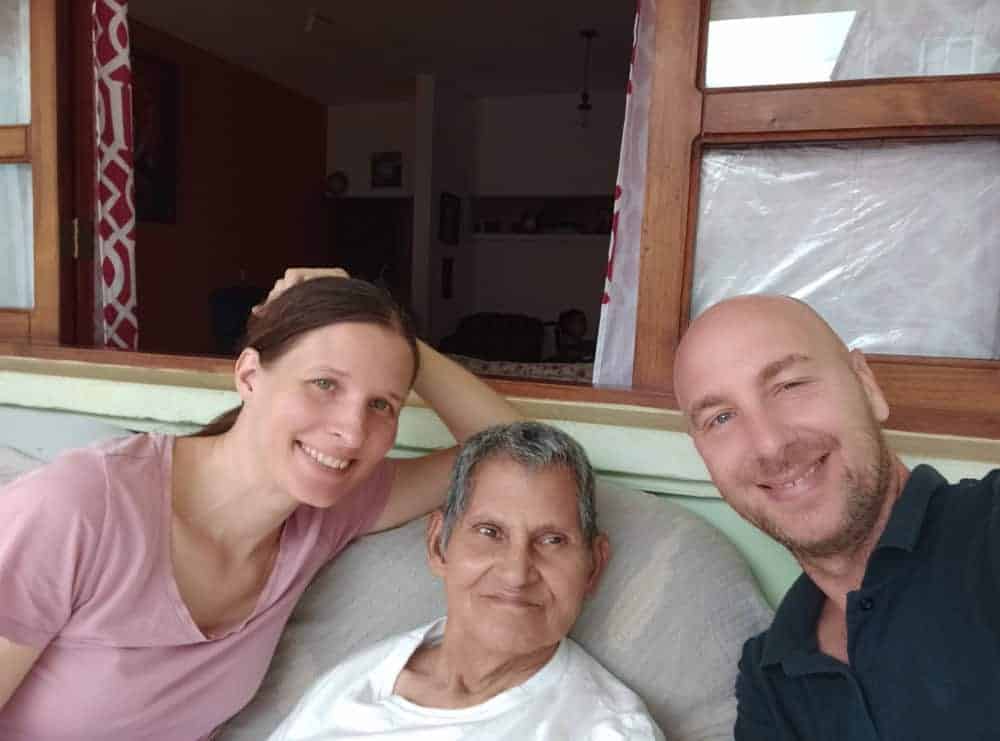How painful it is when your beloved person dies, especially a spouse or a child, is known only to those who have experienced such pain.
But imagine that a disease first takes your husband, then your daughter, your son is on the verge of death, and your grandson already shows the first signs of a fatal illness.
Difficult but inspiring story
Ina is one of the first people we visited at home with a group of volunteers. Her story is shocking and full of life trials, but at the same time inspiring, so I would like to share it with you.
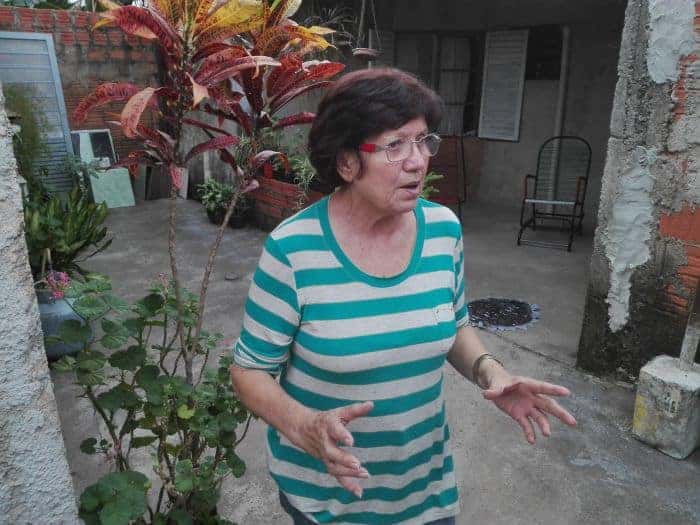
Ina got married 47 years ago. At that time, she moved to her husband’s house where she lives today.
‘We lived a completely normal life, together with my husband’s mother and father. But that didn’t last long. We found out that my father-in-law was sick. He started losing his balance, he walked with more difficulty every day, and his mood changed too. He became restrained and often depressed. He was a very good man and I loved him.’
Huntington – a disease that shows no mercy
Only after two years, they found out the cause of father-in-law’s illness. Huntington’s disease.
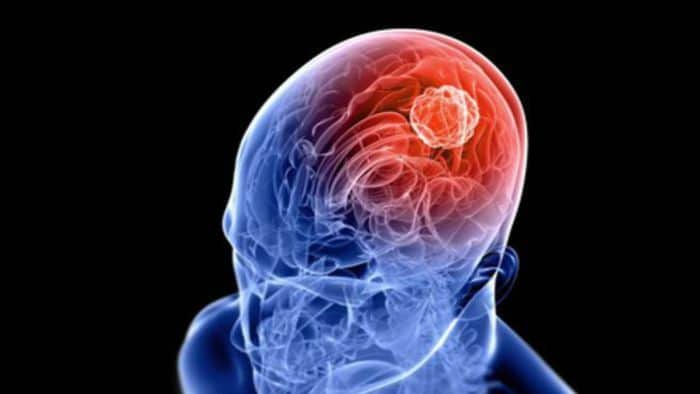
It is a rare, hereditary and incurable disease that occurs due to the death of brain cells. The symptoms usually begin at age of 30, sometimes later, with uncontrolled, impulsive movements and walking difficulties.
Eventually, one finds it more and more difficult to talk and coordinate their movements. Muscular functions decrease, even swallowing and chewing food requires a lot of effort. There are memory problems, depression and panic attacks.
Later on, the patient can no longer recognize their loved ones. Towards the end, one is fully dependent on another person until he dies of pneumonia, cardiovascular diseases, or other similar disorders.
Taking care of father-in-law, fearing for her husband
Life went on and father-in-law’s condition quickly deteriorated. During that time Ina gave birth to two children, son Fabio and daughter Denise. A happy family with difficult life trails awaiting them.
Taking care of father-in-law who no longer was able to leave his bed and could only turn around from one side to another, was exhausting for Ina. But what the most difficult for her was looking at her husband.
When he was 31 years old, he also began to exhibit exactly the same symptoms as his father before. She was terrified: will he face the same destiny?
The beloved father-in-law died in a way that every Huntington patient dies, in cramps and pain, impoverished and degraded.
Living in shortage
But father-in-law’s bed didn’t stay empty for long. Fabio and Denise grew up next to their father who was dying in front of their eyes. With great pain, Ina lay down her husband and took care of him in the most difficult time of his life.
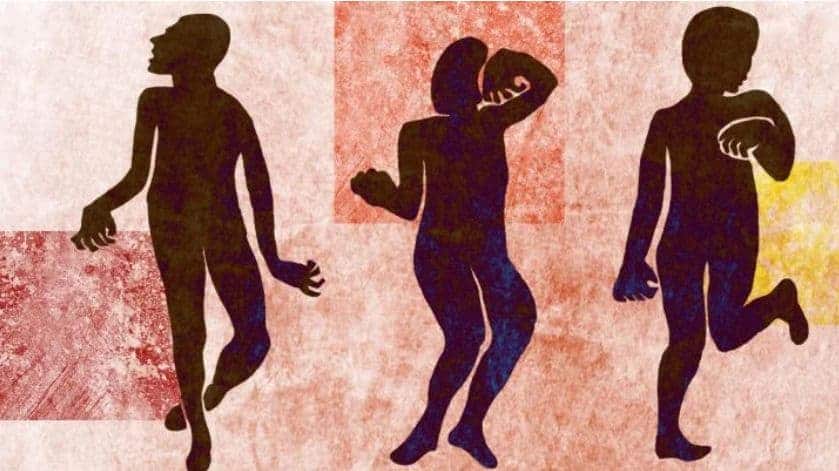
‘It was a tough time,’she told us.‘Not only was my husband who was the love of my life leaving me, we also didn’t have much money. Maybe it’s different in Europe, but here we don’t receive social assistance, money for medical devices, diapers and everything else. We need to provide that ourselves. I had a job, but having only one source of income was often not enough, so we didn’t have much money.’
She also buried her husband
Ina’s husband died in great pain as his father before him. He was only 40 years old. Denise married and gave birth to two children, but the disease didn’t spare her either. Her husband left her, so she and her two children moved back home to her mother’s.
‘I was not spared,’ Ina told us, ‘as if it wasn’t enough that I had to bury my husband. I looked at my daughter and saw her future. And mine’
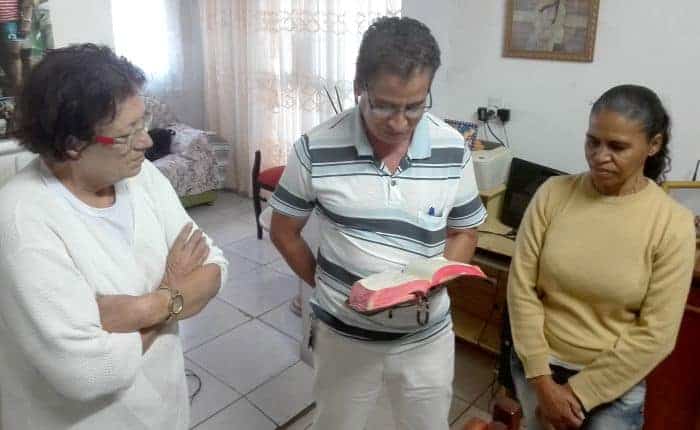
Also, Denise’s illness progressed rapidly and Ina took care of her with all her love, the same as she did with her husband.
Help from volunteers
At that time, the news of Ina’s tragic story came to the Vincentians, a group of volunteers who visit poor and sick people at their homes.
‘They came to visit, prayed with me and helped me. When Denise needed care, I stopped working, because I also had to take care of her three children. The volunteers brought me food and collected money so that we could renovate the bedroom to make better conditions for Denise.’
Francisco, one of these volunteers, told us, in what difficult situation the family lived at that time:
‘Denise wasn’t able to walk normally anymore, she moved her head uncontrollably, and her illness visibly deteriorated with each of our visits. She was beautiful and she always was happy to see us. The apartment was in a bad condition, the plaster in the bedroom was falling off, there was no toilet nor the bathroom in the house, and Ina didn’t even have basic things essential for the survival of herself, her daughter and the children. We had to help.’
She buried her daughter too
Denise died at the age of 36. After her father-in-law and husband, Ina had to say goodbye to her daughter too.
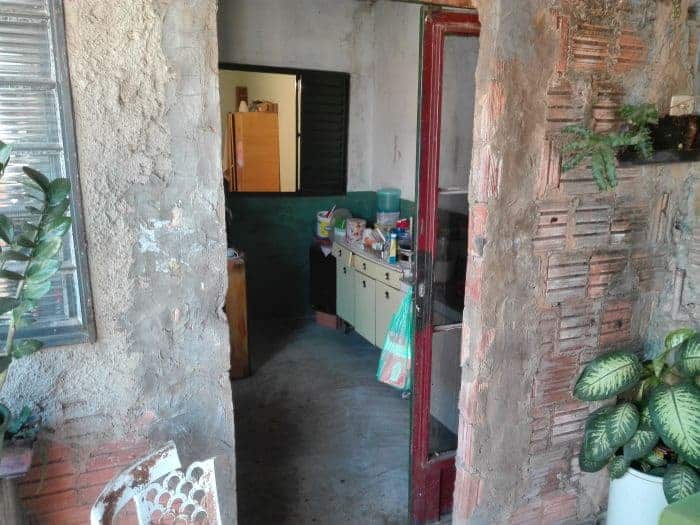
How strong one must be to be able to cope with such life? How many people would break under the weight of such burden? But … God never imposes a burden we couldn’t carry. That is Ina’s belief too.
At Ina’s
As we knocked on the door, we were greeted by a beautiful and vital woman in her the seventies. She hugged each and everyone one and kindly invited us inside.
Her apartment is a modest and in need of renovation. The old kitchen and dining room are joined together in the same room, while a separate room is reserved for her son.
You read it correctly. At the time her daughter Denise died, Ina’s second child got Huntington’s disease too. Before that, Fabio got married and has a daughter and a son (they both live in the Sao Paulo province).
His wife left him at the moment she found out about his illness and she doesn’t want to have any contact with Ina, let alone contribute money or help with the care.
We entered the room
Ina took us across the kitchen and the living room, into a room where she took care of her late father-in-law, husband and daughter and now the last person God brought to her life.
The room of nine square meters reeked heavily of urine. On the dresser, there was a TV on, and on the floor, there were two mattresses reaching from one wall to another.
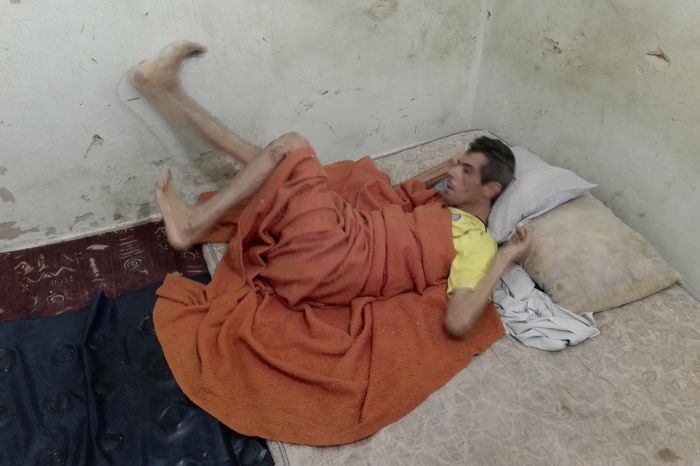
As we entered, Fabio did not see us. He was tossing and turning restlessly his eyes were moving from side to side and his sighing reflected the pain he was in.
In the last stage
He’s been lying for three years on the mattress, tossing and turning because of the cramps, completely feeble, unable to talk and dependent on his mother. He doesn’t know anyone anymore, the disease is in its last stage, and Ina knows well what’s coming next.
We stood next to Fabio, listening to Ina’s story. Then we held hands and prayed as these volunteers do whenever they visit.
‘I want to take him in the sun’
Ina explained she wants to buy a wheelchair for Fabio, the one that is adapted for Huntington’s patients – safe enough to sit comfortably.
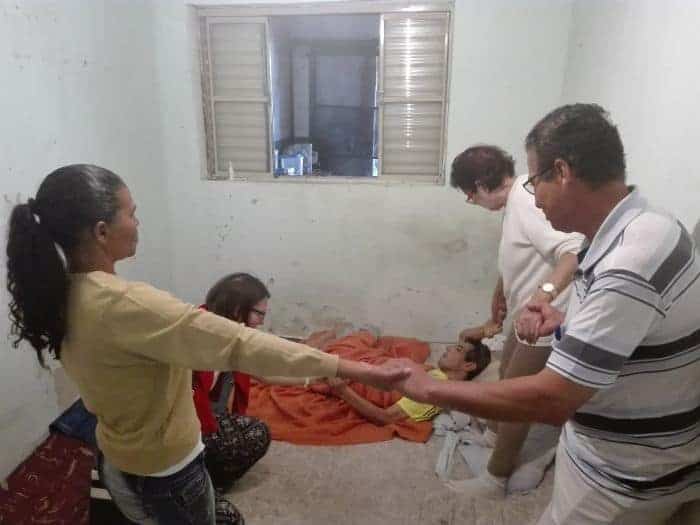
‘So I can finally lift him off the mattress and take him in the sun. I’ve asked the social service several times for a wheelchair, but they don’t respond to my requests,’ she said with tears in her eyes. ‘I would also like to have a proper bed instead of a mattress so I can lift him more easily as the constant bending and lifting hurts my spine quite heavily.’
Ina said that the roof needs to be repaired as in some places it is leaking and the water comes in when there’s heavy rain, and the moisture is harmful for the health.
‘That’s something I can’t afford at the moment since I barely have enough money for food, electricity, diapers and medicine for a month.’
All the money Ina gets from the state is Fabio’s pension, which amounts to 800 Brazilian Reales, just over € 180 per month. I would like to mention that the prices of food and other supplies in Sao Paulo are comparable to those of Slovenia.
We were shocked
We were shocked by the view of Fabio and Ina at that moment. We were shocked so strongly we decided to change the purpose for which we are currently collecting money.

We talked with Lucas who agreed that instead of collecting money for a computer room (which is also very important) we should collect money for Ina and some other families who are in deep need of it.
More than just a wheelchair
We hope that we will be able to raise enough money for a few wheelchairs, not only for Ina, but also for others who are denied by the state. I will write about them in the following posts.
With the money, we collect we would like to buy a bed for Fabio, help the family to repair the roof and buy other healthcare products, clothes and food.
How long?
As we were saying goodbye to Ina in front of her house, a young boy came out of the house and greeted us shyly as he went across the backyard to the street.
‘I’m very concerned about this boy,’ said Ina, looking after him. ‘All Denise’s sons still live with me. This is Neto, her oldest son. I pray that I’m wrong, but I think he shows the first symptoms of the disease. He began to become withdrawn, he has outbursts of anger and difficulties moving, exactly as my father-in-law, husband, Denise and Fabio did before him.’
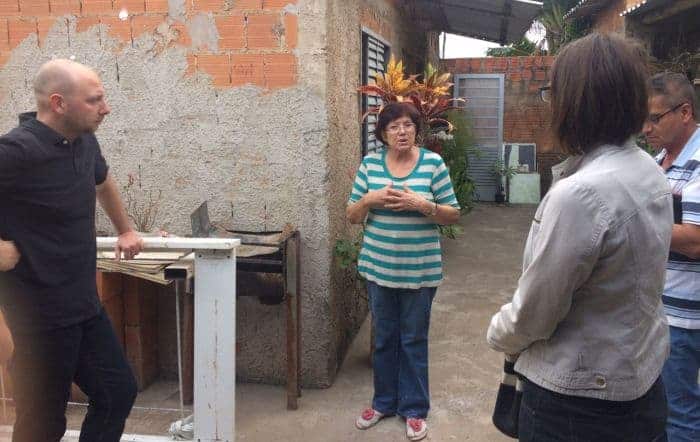
Is it possible for this young boy to be the fifth one to be stuck in bed and in care of his exhausted grandmother?
The life-force that inspires
Despite the fact that Ina hasn’t been spared in her life, she radiates positive energy and life-force as only a few do. He firmly believes in God and is convinced that He knows why this suffering is necessary. Not a word of complaint, only gratitude for everything that was given to her in life.
That’s ‘operando’ – God who works, teaches, liberates, and attracts to himself. The harder the experience, the more present he is – if only the heart is open and trusts in Him. How much can we learn from her!
We stay connected. Operando.
Nace Volčič
